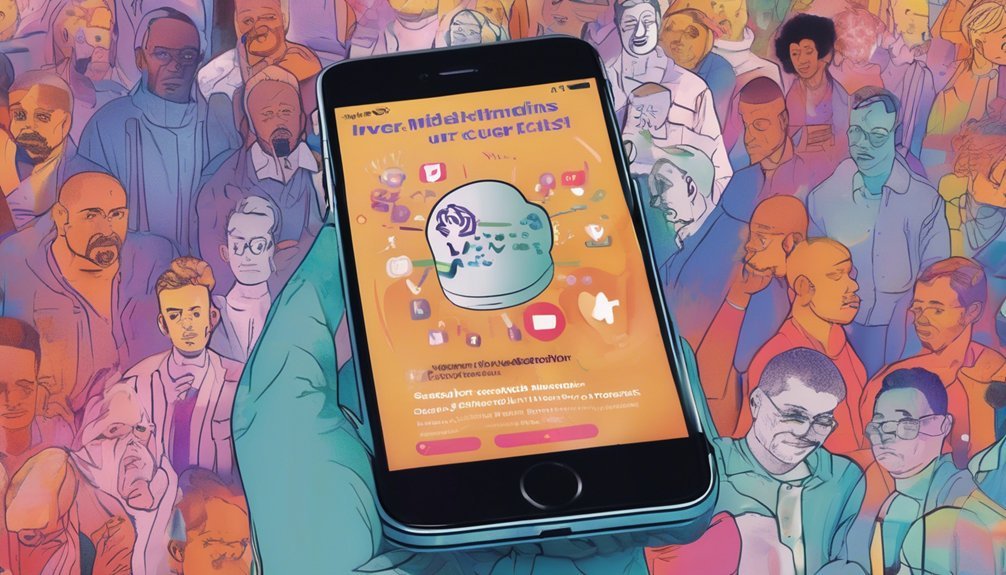In 2025, influencers spread viral claims linking ivermectin to cancer treatment, raising serious concerns about misinformation. You might wonder how these assertions gained traction despite the lack of scientific backing. As you explore the narratives crafted by these influencers, it’s crucial to consider the potential impact on public health and trust in medical advice. What’s driving this trend, and how can you discern fact from fiction?
Key Takeaways
- Influencers often promote ivermectin as a cancer treatment, but there is no scientific evidence supporting its efficacy for this use.
- Anecdotal evidence from influencers can mislead followers, diverting attention from proven cancer therapies.
- Current research and clinical trials have not validated ivermectin as an effective treatment for cancer.
- Misinformation from health influencers can lead to harmful health decisions and delayed access to effective treatments.
- Consulting healthcare professionals and relying on credible sources is crucial for accurate health information regarding ivermectin.
The Rise of Influencers in Health Discourse

As social media platforms continue to grow, you’ve likely noticed the rise of influencers shaping health discourse. These individuals often leverage their platforms to share information about various health topics, aiming to engage and educate their followers.
However, while some influencers promote health literacy and provide evidence-based content, others may spread misinformation, leading to confusion and potential harm. It’s essential to critically evaluate the information you encounter online, especially when it comes from influencers.
Understanding Ivermectin: Uses and Misconceptions
Influencers often share a mix of accurate and misleading information, especially regarding controversial treatments like ivermectin.
While ivermectin is primarily known for its uses in treating parasitic infections in humans and animals, many misconceptions surround its efficacy against other diseases. Some claim it can cure cancer, but there’s no scientific evidence to support this.
It’s crucial to understand that ivermectin uses are specific and should be guided by healthcare professionals. Misunderstandings about its applications can lead to dangerous health decisions.
Always rely on credible sources for information and consult medical experts when considering treatments. By doing so, you can better serve others and ensure they receive accurate, evidence-based health information.
Viral Claims: What Are They Saying About Ivermectin and Cancer?
What’s fueling the viral claims about ivermectin’s potential to treat cancer? Many influencers are suggesting that ivermectin can serve as an alternative to established cancer treatments, often citing anecdotal evidence over scientific research.
This misinformation can be harmful, as it diverts attention from effective therapies that are supported by rigorous studies. The public health implications are significant; promoting unproven treatments could lead patients to forgo necessary medical care.
Additionally, the lack of credible data on ivermectin’s efficacy against cancer raises serious concerns. It’s crucial to rely on evidence-based information and consult healthcare professionals when considering treatment options.
The absence of credible evidence for ivermectin in cancer treatment highlights the importance of evidence-based care and professional guidance.
Misleading claims can undermine trust in legitimate cancer therapies and jeopardize patient well-being.
Analyzing the Influencers Behind the Claims

Several key influencers have emerged in the discussion surrounding ivermectin and its alleged cancer-fighting properties. These individuals often leverage their platforms for health advocacy, but it’s crucial to evaluate their influencer credibility.
Many of them lack formal medical training or a background in oncology, which raises questions about the validity of their claims. While they might aim to provide support and awareness, relying solely on their assertions can be misleading.
You should critically assess the information they share, considering the source and its evidence base. Engaging with verified medical professionals and scientific literature can help you navigate these discussions more effectively, ensuring that your understanding of ivermectin and cancer treatment is grounded in reliable information.
Scientific Evidence: What Does the Research Say?
When examining the claims about ivermectin’s potential cancer-fighting properties, it’s essential to turn to the scientific evidence. Current research doesn’t support these assertions.
Here’s what you need to know:
- Clinical trials investigating ivermectin for cancer treatment have yielded inconclusive results.
- The treatment efficacy of ivermectin has been primarily established for parasitic infections, not cancer.
- Many studies lack robust methodologies, making it difficult to draw reliable conclusions.
In light of these findings, it’s crucial to approach any claims about ivermectin’s role in cancer treatment with skepticism.
Always rely on peer-reviewed research and consult healthcare professionals for guidance. Serving others means advocating for evidence-based practices in health decisions.
The Dangers of Misinformation in Health Decisions
Misinformation can significantly impact your health decisions, leading to misguided treatments and harmful consequences.
When you encounter claims about treatments like ivermectin, it’s crucial to evaluate their credibility. Low health literacy can make you more vulnerable to these misleading narratives, as you may not have the tools to discern fact from fiction.
This can lead to serious misinformation consequences, such as delaying effective treatments or opting for harmful alternatives.
It’s essential to consult trusted medical sources and verify claims before making health choices.
Impact on Public Perception and Behavior

Although misinformation about treatments like ivermectin can spread quickly, its impact on public perception and behavior can be profound. Misleading claims can erode public trust in health authorities and professionals, affecting decision-making at crucial moments.
You might notice several key effects:
- Increased skepticism towards legitimate health information.
- A rise in demand for unproven treatments, jeopardizing patient safety.
- Lower health literacy, making it harder for individuals to discern fact from fiction.
These shifts can lead to harmful behaviors, such as rejecting vaccines or avoiding necessary medical care.
Responsible Sharing: How to Verify Health Information
To combat the negative effects of misinformation, it’s vital to prioritize responsible sharing of health information. Enhancing your health literacy and applying critical thinking skills can help you discern credible sources. Always verify claims before sharing them.
Here’s a simple guide to help you evaluate health information:
| Criteria | Questions to Consider |
|---|---|
| Source Credibility | Is the information from a reputable health organization? |
| Evidence-Based | Are claims supported by scientific research? |
| Author Expertise | Does the author have relevant qualifications or experience? |
| Date of Publication | Is the information current and up-to-date? |
Navigating the Future of Health Communication
As the landscape of health communication evolves, staying informed about emerging trends and technologies becomes essential for effective engagement.
To navigate this future, focus on enhancing your digital literacy and understanding how it impacts health communication.
Enhancing digital literacy is crucial for effectively navigating the evolving landscape of health communication.
- Embrace social media as a tool for sharing credible health information.
- Utilize fact-checking resources to verify claims before sharing.
- Engage in community discussions to foster informed dialogue.
Frequently Asked Questions
How Can I Identify Credible Health Influencers?
To identify credible health influencers, check their health qualifications and look for expert endorsements. Verify their educational background, professional experience, and ensure they provide evidence-based information to support their claims. Trust those who prioritize accuracy and integrity.
What Are Common Misconceptions About Ivermectin’s Effectiveness?
Around 60% of people believe ivermectin’s effective against COVID-19, revealing common treatment misconceptions. You should know that many ivermectin myths circulate, but scientific evidence doesn’t support its use beyond specific parasitic infections.
How Does Misinformation Spread on Social Media Platforms?
Misinformation spreads rapidly on social media due to algorithms favoring engagement over accuracy. You’re more likely to encounter sensational content, which fuels misinformation dynamics, making it crucial to verify information before sharing it with others.
What Should I Do if I Encounter False Health Claims?
When you come across false health claims, don’t throw caution to the wind. Use critical thinking and media literacy skills to verify information, consult reliable sources, and share accurate knowledge to help others navigate misinformation.
Are There Specific Signs of a Reliable Health Source?
When assessing health information, look for reliable sources that cite evidence, are peer-reviewed, and have clear authorship. Improving your health literacy helps you discern trustworthy content, ensuring you serve others with accurate information.
Conclusion
In the tangled web of health misinformation, it’s crucial to sift through the noise and seek clarity. The viral claims linking ivermectin to cancer treatment lack scientific backing and can lead to harmful choices. By prioritizing credible sources and fact-checking, you can protect your health and that of others. Remember, in the realm of health, navigating with a compass of evidence is far more reliable than following the whims of fleeting trends.




